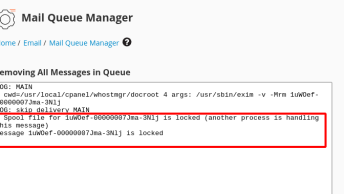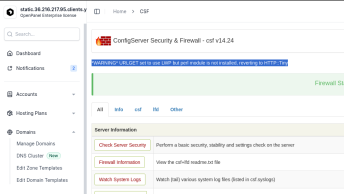scp – secure copy (remote file copy program)
Syntax
scp [-1246BCpqrv] [-c cipher] [-F ssh_config] [-i identity_file] [-l limit] [-o ssh_option] [-P port] -S program] [[user@]host1:]file1 [...] [[user@]host2:]file2| -1 | Forces scp to use protocol 1. |
| -2 | Forces scp to use protocol 2. |
| -4 | Forces scp to use IPv4 addresses only. |
| -6 | Forces scp to use IPv6 addresses only. |
| -B | Selects batch mode (prevents asking for passwords or passphrases). |
| -C | Compression enable. Passes the -C flag to ssh(1) to enable compression. |
| -c cipher | Selects the cipher to use for encrypting the data transfer. This option is directly passed to ssh. |
| -F ssh_config | Specifies an alternative per-user configuration file for ssh. This option is directly passed to ssh. |
| -i identity_file | Selects the file from which the identity (private key) for RSA authentication is read. This option is directly passed to ssh. |
| -l limit | Limits the used bandwidth, specified in Kbit/s. |
| -o ssh_option | Can be used to pass options to ssh in the format used in ssh_config. This is useful for specifying options for which there is no separate scp command-line flag. For full details of the options listed below, and their possible values, see ssh_config.AddressFamily BatchMode BindAddress ChallengeResponseAuthentication CheckHostIP Cipher Ciphers Compression CompressionLevel ConnectionAttempts ConnectionTimeout GlobalKnownHostsFile GSSAPIAuthentication GSSAPIDelegateCredentials Host HostbasedAuthentication HostKeyAlgorithms HostKeyAlias HostName IdentityFile IdentitiesOnly LogLevel MACs NoHostAuthenticationForLocalhost NumberOfPasswordPrompts PasswordAuthentication Port PreferredAuthentications Protocol ProxyCommand PubkeyAuthentication RhostsRSAAuthentication RSAAuthentication ServerAliveInterval ServerAliveCountMax SmartcardDevice StrictHostKeyChecking TCPKeepAlive UsePrivilegedPort User UserKnownHostsFile VerifyHostKeyDNS |
| -P port | Specifies the port to connect to on the remote host. Note that this option is written with a capital ‘P’, because -p is already reserved for preserving the times and modes of the file in rcp. |
| -p | Preserves modification times, access times, and modes from the original file. |
| -q | Disables the progress meter. |
| -r | Recursively copy entire directories. |
| -S program | Name of program to use for the encrypted connection. The program must understand ssh options. |
| -v | Verbose mode. Causes scp and ssh(1) to print debugging messages about their progress. This is helpful in debugging connection, authentication, and configuration problems. |
Examples
scp myfile.txt hope@computerhope: myfile.txtThe above example would copy the file myfile.txt to the computerhope server under the name hope.
scp remote:/home/hope/*.
Copy files in the remote machine in the /home/hope directory to your local computer.



